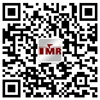Topic: Thailand atmospheric corrosion data driven research for accelerated corrosion test design and life prediction
Speaker: DR. Wanida Pongsaksawad,
Failure Analysis and Corrosion Technology Research Team, MTEC, Thailand
Time: 14:00-15:00, (Thu.) Aug. 22, 2019
Venue: Room 403, Shi Changxu Building, IMR CAS
Welcome to attend!
Wanida received her B.S. in Materials Science and Engineering in 2001 from Case Western Reserve University and Ph.D. in Materials Science and Engineering in 2006 from Massachusetts Institute of Technology. Since joining MTEC in 2006, she has been involved in atmospheric corrosion studies in Thailand, corrosion monitoring in a manufacturing plant, and remaining thickness calculation from inspection data and chemical mixture. She also led research projects on Thailand corrosion cost and sacrificial anode manufacturing & modeling.
Her current research work is on translating atmospheric corrosion results into corrosion map and corrosion life prediction based on sensor data and correlation of corrosion rate with the environmental parameters. Wanida’s team is conducting a study to collect chloride distribution pattern in Thailand, which will make the corrosion map more accurate. With corrosion map available, life time of metallic materials can be estimated; thus, suitable materials can be chosen for any location in Thailand. It will also be useful for life cycle cost analysis. The expansion of database can also be predicted by machine learning approach.
Abstract:
Thailand is influenced by tropical, monsoons, and equatorial climates with small temperature variation, high relative humidity, and high amount of rainfall in some regions. This unique climate and local atmospheric aerosols have significant effects on corrosion of outdoor metallic structures. Exposure tests of carbon, weathering steels, stainless steels, aluminum alloy, and galvanized steels have been conducted at various test sites and relevant environmental factors have been monitored. Galvanic type atmospheric corrosion monitoring (ACM) sensors were also exposed with the samples to monitor time of wetness (TOW). The data recorded from the first project in 2007 until present have been analyzed by power-law corrosion kinetics, charge output and thickness loss correlation, multi-variable regression model, geographic information system (GIS), accelerated test design from chloride deposition rate, and, in the near future, machine learning prediction. From such data analytic, the atmospheric corrosion behavior of each material can be predicted by accelerated corrosion test and by life time prediction models.



